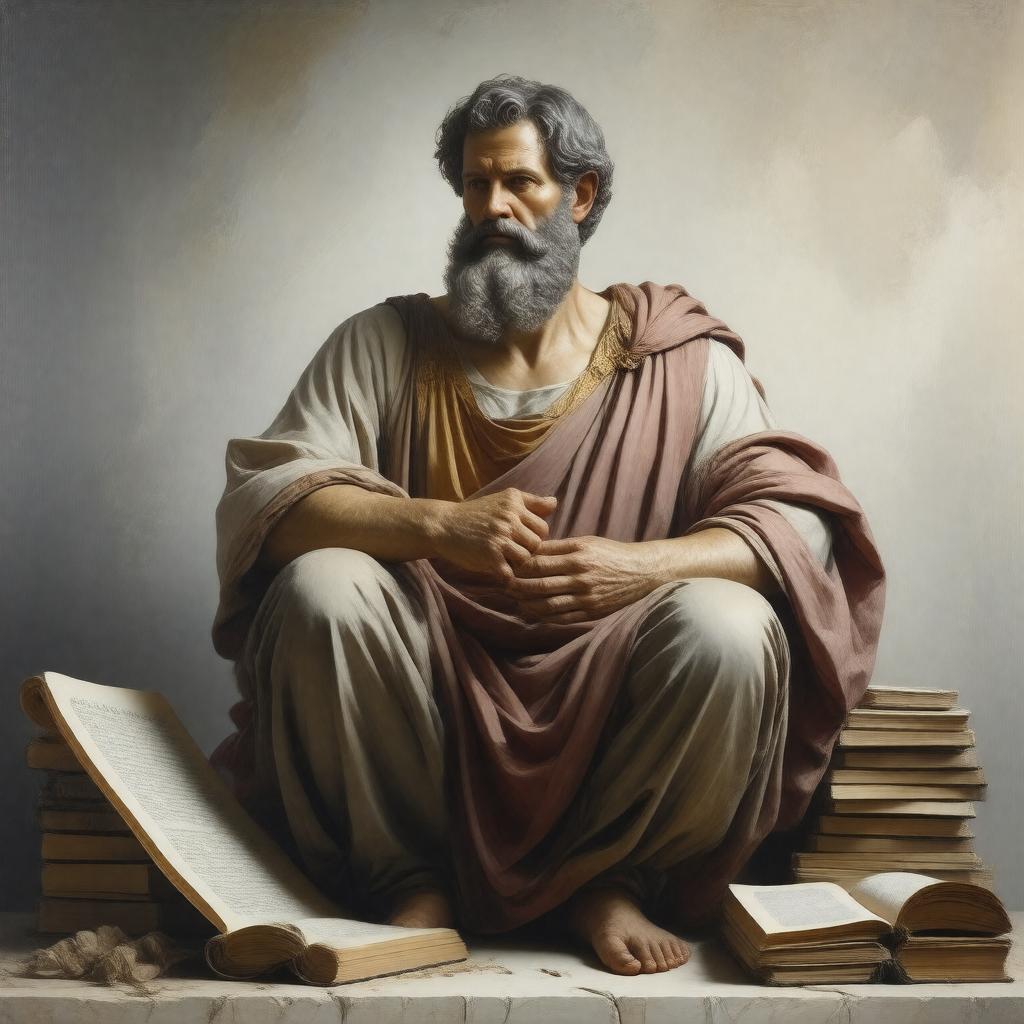Prompt
"Create a realistic image of Plato, a renowned ancient Greek philosopher, sitting in a contemplative pose, surrounded by scrolls and books, with a thoughtful expression on his face, wearing traditional ancient Greek attire, in a style reminiscent of classical Greek art, with a muted color palette and a subtle background that evokes the architecture of ancient Athens."

